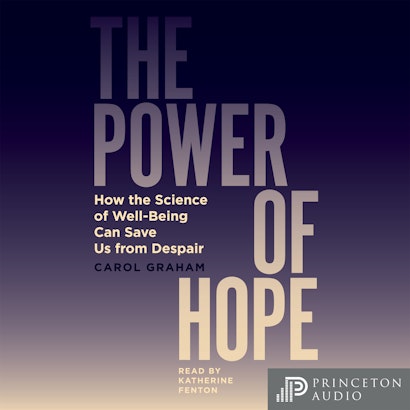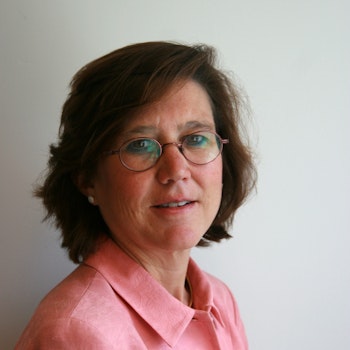In a society marked by extreme inequality of income and opportunity, why should economists care about how people feel? The truth is that feelings of well-being are critical metrics that predict future life outcomes. In this timely and innovative account, economist Carol Graham argues for the importance of hope—little studied in economics at present—as an independent dimension of well-being. Given America’s current mental health crisis, thrown into stark relief by COVID, hope may be the most important measure of well-being, and researchers are tracking trends in hope as a key factor in understanding the rising numbers of “deaths of despair” and premature mortality.
Graham, an authority on the study of well-being, points to empirical evidence demonstrating that hope can improve people’s life outcomes and that despair can destroy them. These findings, she argues, merit deeper exploration. Graham discusses the potential of novel well-being metrics as tracking indicators of despair, reports on new surveys of hope among low-income adolescents, and considers the implications of the results for the futures of these young adults.
Graham asks how and why the wealthiest country in the world has such despair. What are we missing? She argues that public policy problems—from joblessness and labor force dropout to the lack of affordable health care and inadequate public education—can’t be solved without hope. Drawing on research in well-being and other disciplines, Graham describes strategies for restoring hope in populations where it has been lost. The need to address despair, and to restore hope, is critical to America’s future.
Carol Graham is Leo Pasvolsky Senior Fellow at the Brookings Institution and College Park Professor at the University of Maryland. She is the author of Happiness around the World: The Paradox of Happy Peasants and Miserable Millionaires; The Pursuit of Happiness: An Economy of Well-Being; Happiness for All? Unequal Hopes and Lives in Pursuit of the American Dream (Princeton); and other books, as well as numerous articles in academic journals. Katherine Fenton is an award-winning voice actor and the narrator of many audiobooks, including Ira Levin’s Rosemary’s Baby, Elizabeth Gilbert’s The Last American Man, and The Shock Doctrine by Naomi Klein.
“People who have hope also have a better future. Thanks to Carol Graham, we now have empirical evidence that hopefulness and not just objective circumstances matter, often in surprising ways. Read this book to learn more not just about the power of hope but about an entire body of work to which she has so ably and persistently contributed.”—Isabel Sawhill, author of Forgotten Americans
“In this study of hope and despair, Carol Graham once again applies her economist’s empirical perspective to people’s internal feelings, a hitherto verboten subject in economics. A truly pathbreaking volume!”—Richard A. Easterlin, University of Southern California
“If you care about improving people’s lives, this is the book for you. Hope is crucial for starting that journey. Graham explains what all of us—and governments and businesses—must do to reach the goal of better well-being for all.”—Gus O’Donnell, former Cabinet Secretary, United Kingdom
“This fine book fills a yawning gap. Hope, as it shows, is vital for well-being and for effective living. So who is hopeful and why? Read the book.”—Richard Layard, author of Happiness: Lessons from a New Science
“In this remarkable book, Carol Graham, a distinguished researcher in the field of human well-being, takes us in a strikingly new direction. Her evidence unveils the vital role that hope plays in our lives.”—Andrew Oswald, University of Warwick
“Here is a thoughtful, evidence-based, thoroughly readable treatise on the nature of hope. Graham ties high ‘deaths of despair’ among white, low-income Americans to their lack of hope and personal agency; for them America’s Horatio Alger myth of individually driven progress is a heavy burden. The contrast with less well-off but more hopeful Black Americans is striking. Survey results in Peru, St. Louis, and elsewhere show the policy logic of periodically taking a society’s temperature.”—Nancy Birdsall, founding president of the Center for Global Development

